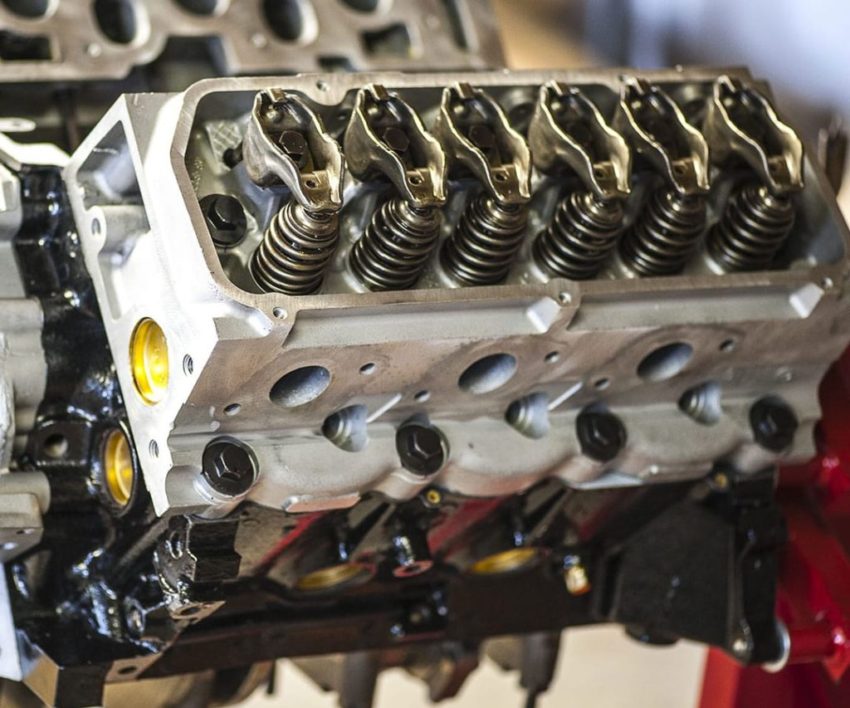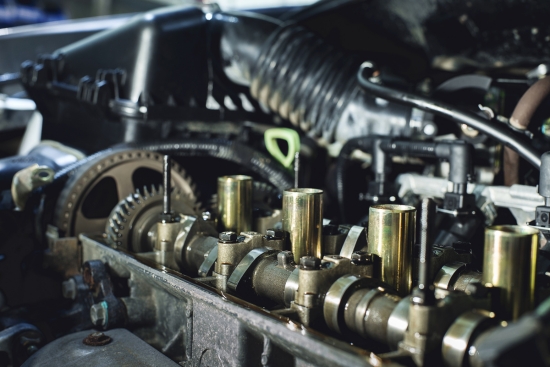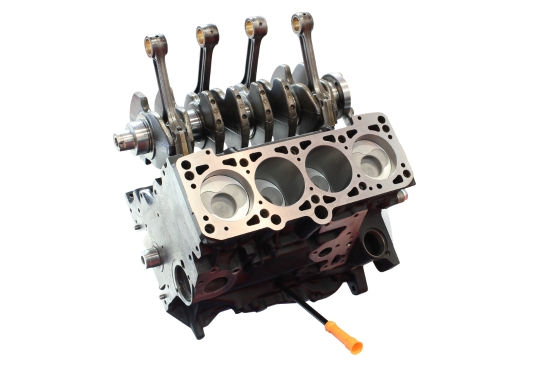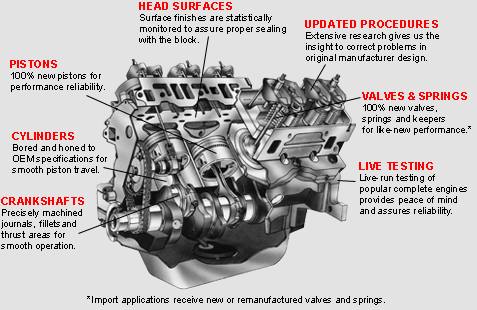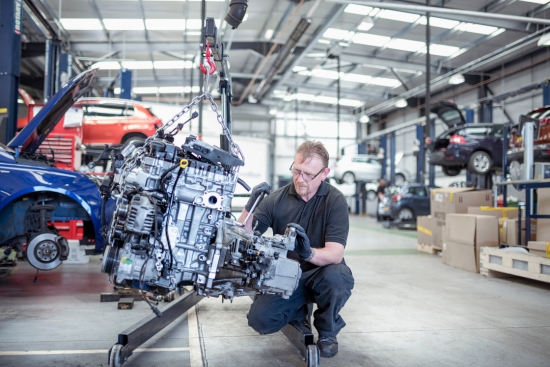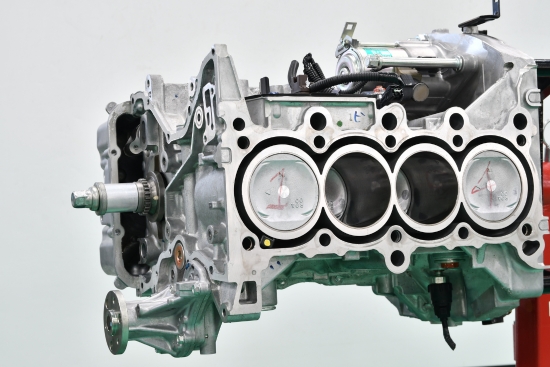Remanufactured engines are less expensive than a crate motor. They can however be just as reliable. There are even instances where a remanufactured motor outperforms the original build. Below I will share where to find remanufactured engines near me, common questions about the process, the pros and cons, and other options to consider.
Map of Remanufactured Engines Near Me
For “Remanufactured Engines Near Me” see the map below…
Who Remanufactures Engines Near Me
Remanufacturing has become a huge industry. With the rise of the secondary auto parts market, the remanufacturing and assembly process has become a popular choice. Common applications are repairs, replacements, and restoration projects.
You can find engine remanufacturing at different types of businesses. Some of these are: engine shops, machine service shops, mechanics, and original equipment manufacturers or manufacturers.
The 3 biggest names in engine remanufacturing are:
There are 3 popular business models. Places that sell remanufactured engines, places that remanufacture an engine you bring to them, and those that do both. Buying a quality remanufactured engine is often as straightforward as a Google search. Finding the right shop to perform your remanufacture on an engine you have requires some vetting.
What is a Remanufactured Engine?
A remanufactured engine is a complete tear-down of a motor. All parts, components, and assemblies are overhauled to meet the original factory standards. Everything gets replaced or machined, polished and refinished, and made to meet the original OEM tolerances. The process is tested and certified by a mechanic.
Many people use the terms rebuild and remanufacture interchangeably, but they are not the same process. A rebuild of an engine involves taking the engine apart and only replacing worn-out and damaged parts. Here, all functioning parts are left in their current state and left untouched. A rebuild can be done by anyone in their home garage.
What Kind of Engines Get Remanufactured?
You can remanufacture any motor. Here are the most common engine types that get remanufactured:
- Heavy-duty diesel engines
- Heavy-duty gasoline engines
- Automotive gasoline engines
- Automotive diesel engines
What to Expect When You Drop Off an Engine…
All businesses that remanufacture motors have their own procedures. At the places who do remanufactured engines near me, this is generally what you customers can expect…
- Drop Off: You drop off or ship your motor to them
- Disassembly: They break down your motor and assemblies into individual parts. The parts are first chemically cleaned and then they are inspected. Each part gets labeled for the type of work it needs.
- Quote: The company sends you a quote for the cost. The quote will include the turnaround time and the cost of everything included like labor, replacement parts, machining, modifications, refinishing, coatings, and any other needed repair work.
- Deposit: If you are happy with the quote, you will need to make a deposit of 50%.
- Order Parts: They order or source all the parts required.
- Machining/Refinishing: Parts are machined, bored, and modified to exact OEM tolerances.
- Reassembly: The engine and all the components are reassembled.
- Shipped: The engine will be shipped back.
In my experience, no tuning will be done on the engine. Tuning the car is a task you complete once you have it back.
Do Remanufactured Engines Come have Warranties?
Remanufactured engines often come with warranties. They do vary from place to place.
For example, Advanced Auto Parts does remanufactured commercial vehicle engines for 12 months. Diesel Engines are warranted for 12 months / 12,000 miles. Farm, industrial, and heavy duty, are warranted for 6 months.
Contrast that with Remman’s Remanns Premium Remanufactured Engines which is a 5-Year Unlimited Miles No Fault Engine Warranty.
The place that remanufactures engines near me, does a 100K mile warranty.
Pros and Cons of Remanufactured Engines
A remanufactured engine has both pros and cons:
Pros
- Cost less than a new engine.
- Lower cost of ownership.
- Outperforms and outlasts a used or rebuilt engine.
- Often backed by warranty programs.
- Can improve gas mileage.
- Will emit fewer pollutants.
- Saves energy related to processing salvaged engines and vehicles.
- Can potentially outperform a new engine because it includes upgrades and the latest specifications.
- Reset to meet the OEM tolerances.
- Certified by a mechanic.
- Helps promote sustainability by reducing the number of new engines built.
Cons
- More costly than a used engine or a rebuilt engine.
- Parts and systems from a vehicle still need to be integrated into the engine, which can introduce new issues.
- Remanufactured engine warranties don’t always cover the cost of labor. The cover craftsmanship and defects.
Alternatives to Remanufactured Engines Near Me
There are 3 other choices to consider: new, new or used vehicle and rebuilt.
A new engine is going to cost a couple of thousand dollars. If you are looking at a heavy-duty diesel engine it’s going to cost even more. The upside however is you have the trust and dependability of a new factory engine. Then you also have a warranty to go with it. In my experience, I would say a remanufactured engine on average is 25% to 30% less than a new engine.
A rebuilt engine is cheaper than a remanufacture, but less reliable. In a rebuild, they take apart the engine and only replace parts that are damaged or worn out. Anything that is currently still operational is left as is. The trouble with rebuilds is they may need replacement parts in the future. While they are not rebuilt to meet the OEM standards, they do however come with warranties. The nice thing about a rebuild is that you can also do the work yourself.
A used engine from a junkyard is a good temporary solution for a quick repair or replacement. While this option is the least expensive, it is also potentially the least reliable. When getting a used engine from a salvage yard you don’t know the service history or how hard the previous owner beat on it. A typical junkyard warranty is 30 days, no cash back, and credit or exchange only.
For more info on used vs rebuilt vs remanufactured auto parts, click here.
Remanufacturing in Action…
Remanufacturing is a huge part of sustainability. It takes 80% less energy to remanufacture an engine compared to creating a new one. While that may not be the reason you want to buy a remanufactured motor, it is a key driver in why the price is less than a new one.
Check out the process in action. Remanufacturing is the process that makes old parts like new parts…
The basic steps of remanufacturing include:
- Removing and reinstalling the engine block.
- Disassembling and inspecting each of the components.
- Machining and replacing parts.
- Customizing your build to optimize the performance.
- Testing each part against the OEM standards.
- Certifying the engine passed all the tests.
Maintenance Tips for Remanufactured Engines
Maintaining a remanufactured engine is crucial for ensuring its longevity and optimal performance. Here are some essential tips to help you keep your engine in top condition.
Routine Maintenance Practices
Regular maintenance is key to the health of your domestic engine. Start by regularly checking and changing the oil. Clean oil reduces wear on engine components and keeps everything running smoothly. Next, inspect the pistons and bearings for signs of damage or excessive wear. These parts are vital for your engine’s operation, and keeping them in good condition is essential.
It’s also important to check the gaskets and seals. These components prevent fluid leaks and maintain proper compression in the engine. A simple visual inspection can help you spot any potential issues early on. Additionally, ensure that the camshafts are well-lubricated and functioning correctly, as they play a crucial role in the engine’s timing and performance.
Longevity and Performance Optimization
To optimize the performance and extend the lifespan of your engine, focus on the cooling system. A well-maintained cooling system prevents overheating, which is a common cause of engine damage. Regularly check the coolant level and the condition of the radiator and hoses.
If your engine powers a truck or van, pay extra attention to the transmissions system. These vehicles often undergo more stress, especially when hauling or towing. Ensure the transmission fluid is at the correct level and that the system is free of leaks.
Using original equipment manufacturer (OEM) parts for any replacements can also enhance longevity. OEM parts are designed to match the specifications of your engine, ensuring a perfect fit and optimal performance.
Troubleshooting Common Engine Issues
If you encounter issues with your remanufactured engine, it’s important to address them promptly. Common signs of trouble include unusual noises, reduced power, or increased fuel consumption. These symptoms can indicate issues with internal components like pistons or bearings.
If your engine performs poorly or struggles to start, check the ignition system, including the spark plugs and wires. For engines that overheat, inspect the cooling system for any leaks or blockages.
In case of complex problems, it’s wise to consult a professional. They can provide a more thorough inspection and assure the correct diagnosis and repair. Remember, investing time and money in regular maintenance can save you from costly repairs down the line and ensure your engine performs at its best.
By following these maintenance tips, you can enjoy the satisfaction of a well-running engine and the peace of mind that comes with knowing your vehicle is ready for the road. Remember, proper care and attention are the keys to getting the most out of your remanufactured engine.
Remanufactured Engines Near Me – Conclusion
Remanufactured engines are a great choice. They promote sustainability and reduce the total cost of ownership of an engine. There are other options to consider before you decide if the process is right for you. Namely the cost and the warranty are two key factors.
You should also consider the cost against used, new and rebuilt motors as well. This is what I have learned from the places who make remanufactured engines near me.

